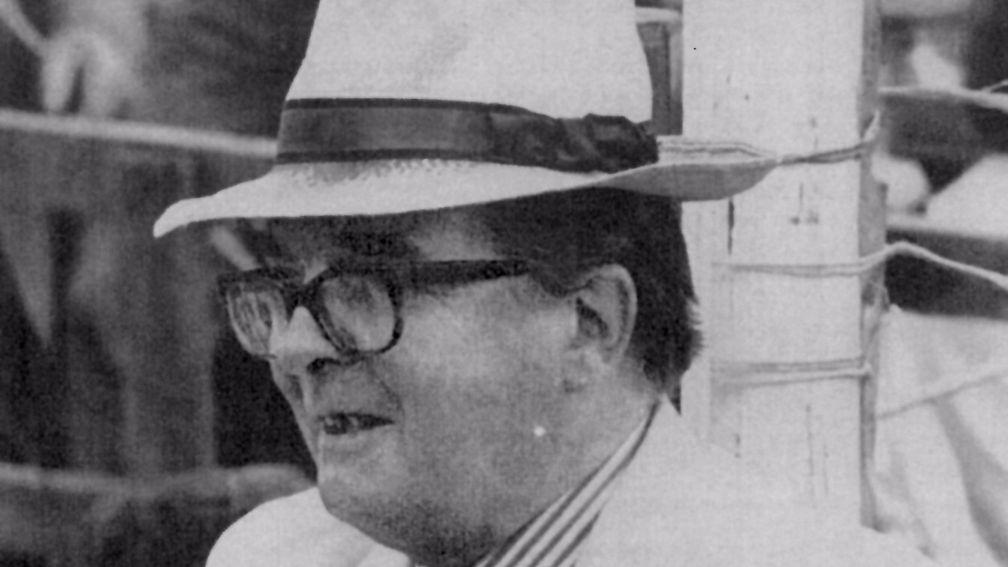Tributes paid after death of popular and pioneering MD Tim Riley

Major Tim Riley, who did much to make Cartmel the hugely popular venue it is today, died peacefully on Wednesday. He was 88.
Riley was a long-term clerk of the course and managing director at the Cumbrian track and was also a significant figure at other courses and in associated sports in the north west and the borders. He has been described as "Mr Cartmel" and it has been said that he was charismatically responsible for starting Cartmel out on its road to its current fashion.
Lord Cavendish of Holker Estates, which owns the racecourse, said: "I was close to Tim for many years. He was very much in the tradition of the retired soldiers who served racing so well after the war, and he was unbelievably loyal.
"I think he sacrificed quite a lot to help Cartmel and keep it in good heart, and he will be remembered with incredible affection by all the staff."
Hugh Fitzgerald, a director and steward at the track, described Riley as "a marvellous character who was incredibly well organised" and added: "Tim was clerk of the course at Cartmel, Carlisle, Kelso and Hamilton all at the same time until he suffered an aneurysm in 1992. He was also a director of the Lowther Horse Driving Trials and was fantastically helpful too in local point-to-pointing.
"One of the big things he did at Cartmel was to bring his military training and organisational skills to the track's access issues. He realised that people's travelling routines had changed and they were no longer relying so much on trains, and so he devised new routes for cars to get in and out."

Radio 5 live's Cornelius Lysaght, a great supporter of racing in the north west and the borders, said: "Tim ran his racecourses like military operations and they were always immaculate, from the fences and hurdles to the loos.
"People talk about the success of Cartmel, Carlisle and Kelso under their present management, but to my mind there's no question that the foundations of their success were laid by Tim in the 1980s and 1990s."
Riley's involvement with racing began in his army days and he was a champion amateur with the British Army Of The Rhine. He also rode winners under Rules as an amateur, including four at long defunct Wye, before getting into racing administration after stewarding at Carlisle.
He was a great communicator, and that, allied to his organisational skills, attention to detail and innovative approach meant that his services were always in demand in the north west and the borders. But for his aneurysm, it is said he might have gone right to the top.
He was clerk of the course at Cartmel at the time of the famous Gay Future coup in 1974 and was also presiding there at the time of a bizarre incident involving jockey Phil Tuck, his reaction to which earned him a place in Graham Sharpe's book Classic Horse Racing Quotes.
After a waitress fan of the jockey had apparently taken a nip at Tuck's backside Riley is credited by Sharpe with having said: "As a general rule we cannot have people going into the winner's enclosure and biting jockeys' arses."
Riley leaves a wife Tarn, and two daughters, both of whom work in racing, Antonia as secretary to Nicky Richards and Nicola latterly with William Haggas.
Published on 7 September 2017inNews
Last updated 16:21, 7 September 2017
- The latest edition of the Racing Post is available to read online now - here's how you can access it
- How Smart View recorded a 76 per cent profit at the Cheltenham Festival
- Smart View is available on the Racing Post app - how to read the revolutionary new racecard
- Levy reform talks 'accelerating' as clock ticks down to April deadline for agreement
- Kieran Shoemark lands another plum Meydan ride for Gosden stable on Trawlerman in Saturday's Dubai Gold Cup
- The latest edition of the Racing Post is available to read online now - here's how you can access it
- How Smart View recorded a 76 per cent profit at the Cheltenham Festival
- Smart View is available on the Racing Post app - how to read the revolutionary new racecard
- Levy reform talks 'accelerating' as clock ticks down to April deadline for agreement
- Kieran Shoemark lands another plum Meydan ride for Gosden stable on Trawlerman in Saturday's Dubai Gold Cup